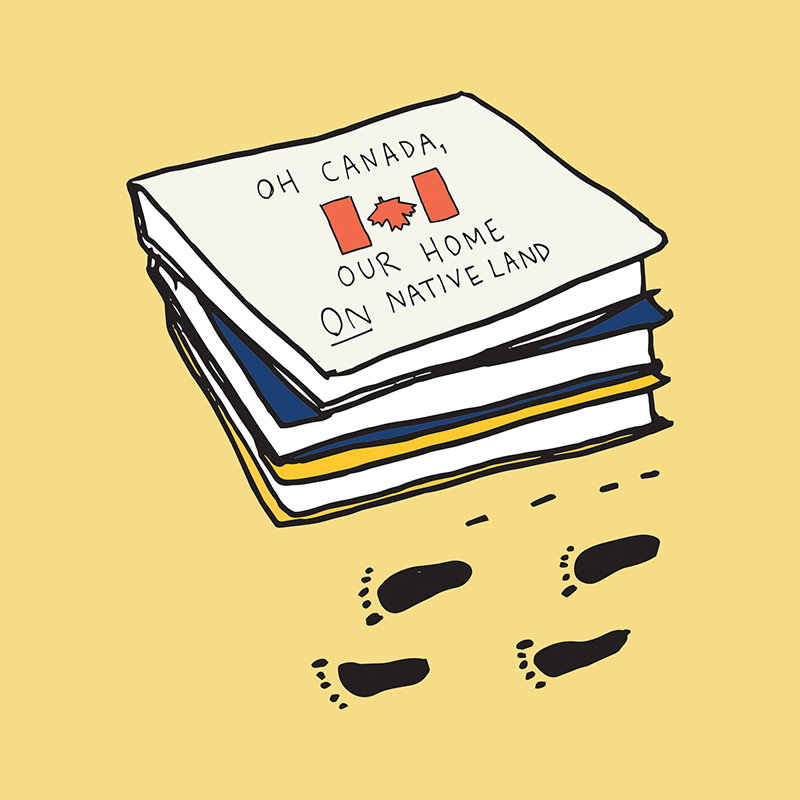Quebec needs to be more honest about the province’s history of injustice towards Indigenous people
I believe that for decades, Quebec has been hiding shameful truths about the province’s past to maintain a good image. As a result, its citizens have been living in blissful ignorance for far too long, and we have made Indigenous peoples suffer for even longer.
In my opinion, a major reason Indigenous issues have seen very little progress in recent years is because generations still aren’t being told truths about Canada’s history. Most generations were taught Quebec’s history through the eyes of a white man.
Elementary and high school curriculums essentially teach students that white people have always been superior to Indigenous people, beginning with how Christopher Columbus “discovered” America. When European colonizers realized other human beings had lived on this land for centuries, they decided to convert these “savages” to Christianity and teach them the white man’s way of life—what they believed was the right way to live.
Thus, history lessons are based on excuses about the “duty” of Europeans to “civilize” Indigenous peoples for the “greater good.” Although Quebec’s high school curriculum was changed in 2017 to include more Indigenous perspectives, according to CBC News, I believe it still doesn’t do enough to explain the extent of Indigenous peoples’ struggles.
This idea of white dominance over Indigenous peoples is embedded in our brains during childhood, and I believe this is why we have not progressed as a nation. The legacy of the mistreatment of Indigenous peoples is seen today in their high rates of poverty, mental and physical health issues, food insecurity and suicide rates, according to The Globe and Mail. Not only does our history neglect those who lived on this land first, it also demeans an entire group of people.
When I was taught Quebec’s history, the material rarely mentioned First Nations people. Instead, it prioritized the history of white Quebecers. The province’s history curriculum has many undeniable flaws, but the biggest one is the failure to acknowledge and properly teach students about residential schools in Canada.
From 1880 to 1996, residential schools tore families apart and subjected Indigenous children to years of physical, sexual and mental abuse. Entire generations grew up without the chance to learn their culture, language or traditions. Residential schools resulted in a cultural genocide. Indigenous children were told that if they spoke their language or practiced their traditions, they would suffer terrible consequences.
These horrible conditions scarred generations of Indigenous peoples, and the consequences of the residential school system are still present in their communities. The infant mortality rate for some First Nations communities is nearly four times the national average, according to a 2013 CBC News article. The suicide rate for young Indigenous men are 10 times higher than those of non-Indigenous youth, according to 2000 data reported in The Guardian. Not to mention the unclean water, poor education, bad housing and lack of job prospects that many Indigenous communities face, according to the Toronto Star.
I believe these issues still exist due to a lack of awareness and care, which is something the government should be held responsible for. As a nation, we have neglected Indigenous peoples. We have let them down for centuries, and progress will never come unless the truth is taught. Future generations must learn about the impact that residential schools and colonization continue to have on Canada’s Indigenous communities. A lack of education about these issues has shielded many Canadians from the harsh reality Indigenous people face everyday.
In my opinion, this ignorance has led Quebecers to feel less empathy towards Indigenous people. More has to be done, and it needs to be done better. Our children deserve an honest education, and most importantly, First Nations people deserve to have their histories told. In the words of the wise Malala Yousafzai, an education activist, “There are many problems, but I think there is a solution to all these problems; it’s just one, and it’s education.”
Graphic by Zeze Le Lin




